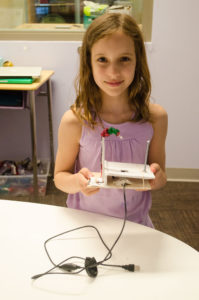 By Courtney Dickinson
By Courtney Dickinson
What indicates a school’s success? Is it simply a standardized test score, like MCAS?
It isn’t. The decades-long standardized testing movement has failed to close the equity gap in education, which was its entire intent. So where does that leave us?
One of the challenges in education is that we are not measuring the things that matter the most. But that can change. We have an opportunity not only to redefine the purpose of school but also step back as a society and look at what we are doing to our children. Many common school practices are actually harmful to kids: inducing anxiety, creating a culture in which kids feel anonymous or silenced, burying students in voluminous homework loads, and rewarding conformity and compliance instead of setting the stage for students to find their voice and engage in authentic problem solving.
The result? Disengagement, chronic absenteeism, dramatic increases in adolescent depression, and dropouts. Every 26 seconds, a student drops out of high school.
The problem is a systems problem, and few within this system feel authorized to take a stand to do something different. Teachers are fearful of losing their jobs. Superintendents are fearful of being ousted by School Committees – often elected officials who are not trained in how children are motivated or learn. School Committee members worry about not being re-elected, and the only tool they all have to look at is a standardized test that focuses on the basics of reading and math.
Here’s where we can initiate change: let’s redefine school success with a comprehensive dashboard that goes beyond attendance and tests like MCAS. In addition to essential reading and literacy skills, we should equally weight these areas:
- Growth in students’ core capacities: Let’s prioritize and measure growth in students’ habits of mind, like systems thinking, problem-solving, creativity, ethical decision making, emotional intelligence, perspective taking, collaboration, initiative and leadership.
- Positive school cultures and overall student well being: Are there positive and supportive relationships between students and adults at school? What are students’ anxiety and depression levels? Do they feel authentic engagement in learning, and a sense that the work they are doing is meaningful and relevant? Schools can foster a positive school culture that gives kids “permission to fail,” rewarding the practice of taking a chance and trying something new, even if it doesn’t work out as planned.
- Evidence based pedagogy: Put into place learning approaches that are backed by evidence, like learning experiences crafted around students’ curiosity. Reduce reliance on “the teachers lecture, the students listen” learning, and increase project-based learning that is applied to real-world problems. Content acquisition and rapid coverage of topics can, on the surface, seem effective. However, learning psychology tells us that only when knowledge is analyzed, applied in new ways, and truly used does that knowledge “stick,” rather than being forgotten as soon as the test is over.
At Acera, we start every year with non-stressful qualitative assessments to get a snapshot of where kids are – in reading, math, emotional intelligence and perspective taking, conceptual and complex thinking skills – and then, along with parental listening conferences in September, teachers develop an individual learning plan which is uniquely suited to each child’s abilities, needs, and interests.
Beyond our school, we have set the stage to bring this approach to public education within a K-8 urban school in Lowell, through a customized School Success Dashboard which fits their priorities for student growth and school improvement. This free, three-year, whole school engagement will establish baseline measures in the criteria above, and put into place capacities and curricula that will bring learning alive in ways that support student growth in complex thinking, creativity, initiative, and overall well-being and happiness.
We can improve our schools and our kids’ educational and childhood experiences. There are myriad ways to do this, and teachers know how. We need to shift our focus away from MCAS and towards more valid educational priorities, like reimagining schools as microcosms of the world, where kids engage with a sense of purpose to figure things out, express themselves, and be impactful citizens of their community.


